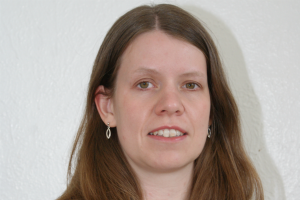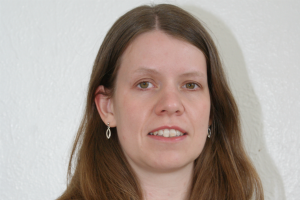
As a profession we are feeling at a loss to understand the case of Dr Hadiza Bawa-Garba, because it is so easy to imagine any one of us in her shoes, and so hard to understand how with no mal-intent, and a conscientious track record, one person can be solely blamed for the sad loss of this six-year-old child.
This was, as far as I can discern, a death due to an infection that rapidly overwhelmed a vulnerable patient, with a pre-existing heart defect, whose heart stopped after being given medication that was not prescribed by the doctor. The short interruption in CPR after the child’s heart had already stopped, due to mistaken identity, is not felt to have had any impact on the outcome.
Now I think there is a very important distinction here that the courts are missing. The doctor here failed to save a life, she did not cause life to expire. This reflects a more widespread misperception in our culture that I believe now needs to be addressed. It is as if it is commonly thought that we have the ‘right’ to good health, and the ‘right’ to stay well and the ‘right’ to be saved whatever happens to us, but is that really our ‘right’? I am realising more and more as I journey through life as a granddaughter, as a daughter, friend, wife and mother, that illness is normal, experiencing poor health is normal and death is also normal – not desirable, most especially at such a young age, but it will sometimes happen.
The many lives Dr Bawa-Garba will have impacted for good are discounted
Death is something we can expect and almost anticipate. Death is sometimes not as easy to predict or prevent as the courts in retrospect think. Unwell children change rapidly, they can maintain the appearance of wellness and deteriorate unexpectedly.
No one wants to see a child die, but it was the bacteria, the process of sepsis, underlying medical problems and a medication that was given without the doctor’s knowledge that ultimately led to this upsetting death.
As doctors we all want to sustain life, to save life, and improve lives, but we are fallible. In all professions, there is an acceptance and celebration of partial success. A good headteacher may help many pupils with exceptionally bad behaviour to turn around and continue in the school, but some may be expelled. An investor may make many successful investments, but some may not make a return. A designer may please many clients, but some will be less satisfied.
This is ok, and their proportional success is acknowledged. As a doctor, the many lives Dr Bawa-Garba will have impacted for good are discounted, and the one life she was unable to save is the only one that is counted. We are being told that there is no room for error, there is no acceptance of our humanity and that if we slip just once that will be it. How can any human be expected to carry that burden?
When Dr Bawa-Garba was serving her patients, and caring as best she could, how can she be seen as the cause of harm – she did not act to harm the patient, but she did not do enough to protect and save in the context of the workload and system pressures that demanded her attention. As doctors in a safety conscious era, we are desperate to do our best, to improve services, to strive for higher standards of care. We welcome criticism, we accept scrutiny and we are striving to do better, but we cannot believe and we cannot accept that we may be convicted of manslaughter in circumstances such as this.
There is no grace. There is no compassion, nor common sense here. I would appeal to the public, to our patients, to those we are seeking to care for: we will do all we can to look after you, but please accept our limitations and recognise that we, too, are human. We want to understand when things go wrong so we can improve, but courts – stop this ludicrous idea that we are taking away life, when it is the natural processes of illnesses that mostly do that.
Doctors have over the past 60 years improved obstetric care, infant survival, care in mature years, and prevention of disease to ensure more people survive into old age. Now the heavy burden of a large population in a depleted service makes it at times hard for us to deal as we would like with each and every patient we see, and the gold standard guidelines that we have developed, give us a bar that we fear not always reaching.
Comparisons can be difficult, but perhaps I can take the liberty to tell a personal story, if only to draw out some relevant themes. This last weekend we held the funeral of my much loved grandmother. She was elderly, aged 93, and she too, like the six-year-old boy who died, had an underlying heart problem (and we know it is the children, the elderly and the disabled in our society who are most vulnerable). She too had an infection – for her, it was a chest infection and she was very out of breath, commenting in stoic tones, ‘isn’t it dreadful?!’ She was admitted to hospital on a Friday evening – the flashing lights ambulance worked well as did the prompt treatment for sepsis in a busy A&E department.
What was not so good, was the lack of recognition of her heart failure (which was obvious to me on a twenty second call to her from two hours away), the omission of the diuretics which were just keeping her going, and the failure to treat her compromised heart, until I arrived the following day and brought this to the consultant’s attention.
Unfortunately it was, perhaps, too little too late and her frail heart could not recover. The consulting doctor admirably admitted on the Monday afternoon, when he finally got to see the last patients on his ward round, that he was stressed. He was frustrated by the lack of a care plan, and she died within hours. This was sad, and hard. I recognise that considering death is so very different in an older lady in her later years. Yet were there things that could have been done better? Certainly. Could these things have changed her prognosis? Possibly. Were those looking after her doing their best in a pressured and over-stretched hospital? Yes, I have no doubt at all that they were. Did it ever even once cross our mind to complain? Not once.
I admit other factors helped us as a family to deal with this unexpected loss. Having been independent in her own home, my grandmother commented the day after admission that she ‘still had things to do’, and, through gasps of breath, recounted her confirmation aged 13, when ‘the vicar…said to me… keep on keeping on!’ Her zest for life was still there, but her strong Christian faith enabled her to move from resistance of death to a peaceful acceptance. We heard her utter prayers of becoming right with God and eagerly anticipating seeing her loved ones again. So though for us, her loss was still painful and we did not feel ready for it, her readiness and courage in the face of death encouraged us and lifted us. As a society our aversion to death and unwillingness to see it as a reality is a dangerous sub-thread in a culture that looks to blame the individual.
I have just told the sad story of Dr Bawa-Garba to my 12-year-old son, who, having a strong sense of injustice, was shocked at how the doctor in the case was treated. In his first year of secondary school he has recently been loving Biology lessons, and, after animated discussions about heart failure from seeing his great-grandmother before she died, was contemplating a career in cardiology.
His flat response was: ‘I don’t think I want to be a doctor anymore.’ We finished dinner and I dejectedly returned to my laptop to continue writing this article. As I began to type, I heard him announce: ‘I think I might want to be a medical defence lawyer.’
Dr Sarah Pinninty is a GP registrar in Derbyshire

















